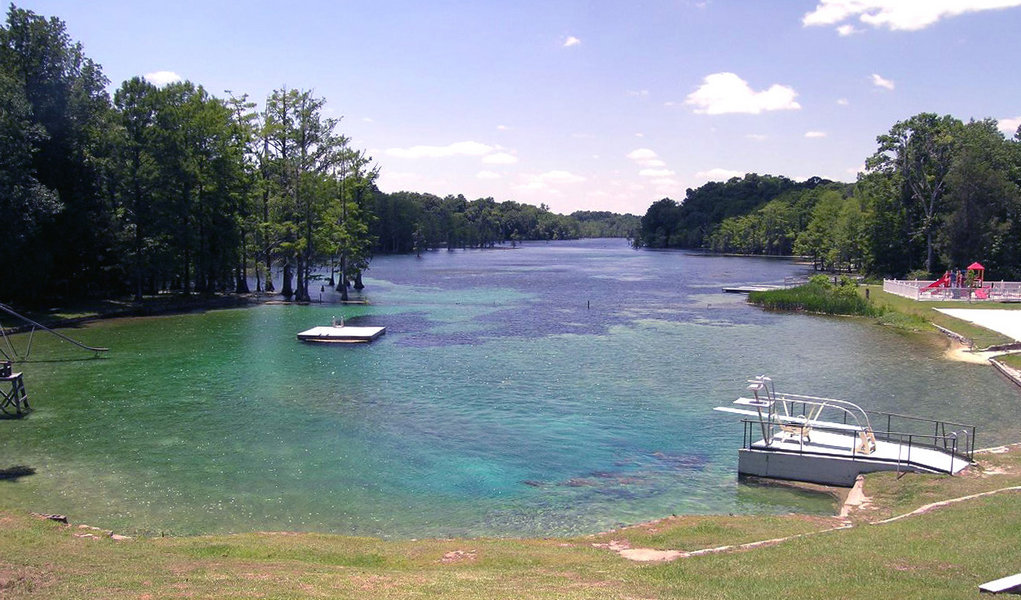Reuse Feasibility Studies
Reuse feasibility studies are conducted in order to evaluate the capability of a domestic wastewater treatment plant to implement reuse. Rule 62-610.820, F.A.C., lists the rules and laws that require preparation of reuse feasibility studies as follows.
(a) Section 403.064, F.S., for domestic wastewater facilities located within, serving a population within, or discharging within designated Water Resource Caution Areas (WRCA).
(b) The Indian River Lagoon system and Basin Act, contained in Chapter 90-262, F.S.
(c) The antidegradation policy in Rules 62-4.242 and 62-302.300, F.A.C., for new or expanded surface water discharges.
(d) By rules of the applicable water management district (WMD).
The rule also provides the conditions for when reuse feasibility studies are not required (see Rule 62-610.820(3), F.A.C., for more details). DEP, with assistance from the WMDs and the Public Service Commission (PSC), published a guidance document titled Guidelines for Preparation of Reuse Feasibility Studies for Applicants Having Responsibility for Wastewater Management in November 1991. These guidelines are used by applicants for domestic wastewater permits. These guidelines also can be used by applicants for consumptive use permits (CUPs) when the applicant also has responsibility for wastewater management.
Consumptive use permit applicants that are also responsible for wastewater management are required to submit reuse feasibility studies to the appropriate WMD for review. Domestic wastewater treatment permits issued to CUP holders must be consistent with the reuse requirements contained in the CUP; the reuse requirements contained in the CUP must be consistent with DEP rules; and the permitted facility must be located in, serve a population in, or discharge within a WRCA.
The PSC has entered into memoranda of understanding (MOU) with the five WMDs and DEP. Under the MOU, PSC will assist the WMDs and DEP in review of reuse feasibility studies submitted by utilities subject to PSC regulation.
Water Resource Caution Areas
Water Resource Caution Areas (WRCA) are areas that have critical water supply problems or are projected to have critical water supply problems within the next 20 years. Reuse of reclaimed water from domestic wastewater treatment facilities is required within these WRCA, unless such reuse is not economically, environmentally or technically feasible.
The WMDs have identified and designated WRCA as required by Chapter 62-40, F.A.C. This chapter also requires WMDs to designate WRCA within the WMD water management plans. Domestic wastewater facilities located within, discharging within, or serving a population within designated WRCA are required to prepare reuse feasibility studies before receiving a permit.
- The Northwest Florida WMD designated the extreme southern portion of Okaloosa, Walton, and Santa Rosa counties and the Telogia Creek Basin in Gadsden County.
- The Suwannee River WMD determined that it does not have any WRCA.
- The St. Johns River WMD designated the entire district a WRCA.
- The Southwest Florida WMD designated four areas (Northern Tampa Bay, Eastern Tampa Bay, Highlands Ridge and Southern).
- The South Florida WMD designated approximately 90% of the district.
These areas are important since Chapter 62-40, F.A.C., requires reuse within these designated WRCA.
Use the interactive map below of the WRCA for more details.
The Antidegradation Policy for Reuse Projects
The antidegradation policy is contained in Chapter 62-4, F.A.C., permits and Chapter 62-302, F.A.C., Surface Water Quality Standards. The antidegradation policy prohibits new or expanded surface water discharges from domestic wastewater treatment facilities unless the facility can demonstrate that the new or expanded surface water discharge is "clearly in the public interest." Determining whether a discharge is in the public interest is important because the discharge may degrade the receiving water body’s quality to the point that it affects public health, safety or welfare.
The language, "in the public interest," also allows permitting of reuse projects that augment Class I waters or require backup discharges. No other surface water discharges, besides these, are allowed unless the applicant has proven water reuse to be non-feasible. The applicant determines the feasibility of reuse of reclaimed water by evaluating whether a reuse project is economically or technologically reasonable. Reuse is preferred over surface water discharges. This has proven to be an effective means to encourage reuse of reclaimed water, while discouraging discharge and disposal of effluent.


